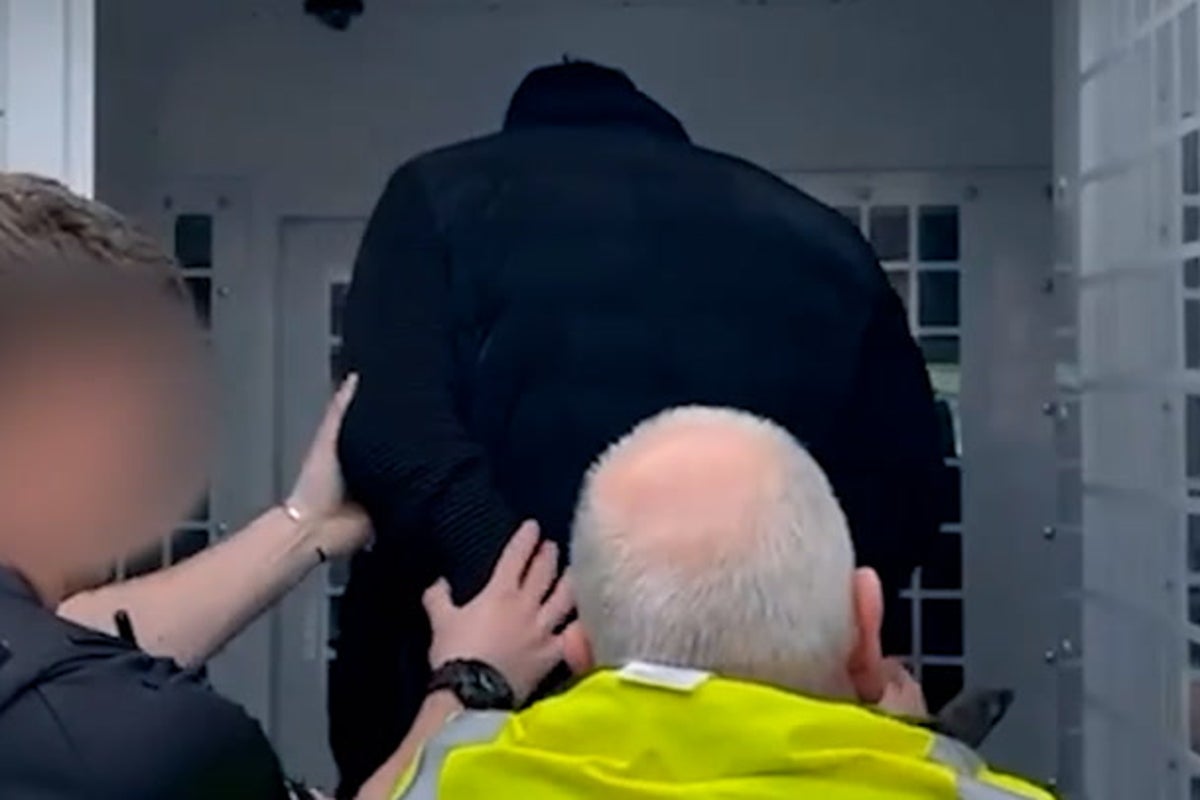Last weekend, President Donald Trump flew to the Middle East to celebrate a ceasefire his administration helped broker between Hamas and Israel, after over two years of war. Still, despite celebrations and the release of surviving hostages, much remains unknown about what will happen next.
To cut through the bluster and assess the significance of the agreement, I spoke on Tuesday with Daniel Levy, the president of the US/Middle East Project.
Levy, who is based in London, previously worked as an Israeli peace negotiator during the Oslo B talks and the Taba peace talks. We first spoke in the immediate aftermath of Hamas’ October 7 attack. “One war crime is not met by another,” he said at the time. “That’s the path to hell, which is precisely the path we’re on now.” His warnings about the shortcomings of the current deal are similarly worth heeding.
The conversation has been edited for length and clarity.
President Trump said in a speech before the Israeli Knesset on Monday that we are witnessing the “historic dawn of a new Middle East.” How would you describe what this deal actually is and its importance?
The easiest way is perhaps to say there are two things going on here.
One is really consequential. The Palestinians in Gaza are not being starved, bombed, displaced, and killed today. The 20 remaining living Israelis being reunited with their families. The fact that Palestinian prisoners were released. The fact that—although Israel is still now, it seems, trying to make it difficult—aid is getting in through the UN agencies that know how to do this in a humanitarian fashion. All of that is really important.
“But there’s no actual plan for getting any further. Israel is still occupying about 50 percent of Gaza.”
It is also being claimed that we have a historic peace deal. That is absolutely fictitious. There has been a lot of bombast in the claims of President Trump related to the second thing. There is no plan. There is no paper. There’s no reference to the West Bank.
If you wanted to be generous to the ceremonial circus in Egypt, and in the Israeli Knesset, you would acknowledge that many of the leaders who were there were on the treadmill of ingratiating themselves with Trump. If you want to be more generous, you could say: The more elaborate this was, the more difficult it makes it to break the ceasefire. And I think that’s true.
I think one of the sticking points for Hamas in these negotiations was: What is the guarantee? In the context of American realities, the guarantee was: Look what a big deal Trump is making of it; how committed he is to it. Therefore, the bar for Netanyahu to go back to the kind of killing that has been credibly described and documented by a UN Commission of Inquiry and others as a genocide, that bar becomes quite high. And that’s where we are. But there’s no actual plan for getting any further. Israel is still occupying about 50 percent of Gaza.
Why did this deal happen at this moment?
I haven’t totally unpacked that for myself.
On the Hamas side, I think that the regional mediating parties were able to tell Hamas: It’s not January to March—when there was a ceasefire, it was violated, and we couldn’t deliver. Now, you see the nature of our relationship with Trump. That was a powerful card for Qatar and Türkiye to play. Hamas, also, was in the room with the Americans. The plausibility of this ceasefire being permanent reached a higher level than it had in the past. That’s the Hamas dynamic.
Then you have on the Israeli side. The answer to the timing is primarily an answer to the question: Why did Netanyahu agree now? Because Netanyahu has been the obstacle to a deal. What changes this time is the American pressure, although it’s not just the American pressure. On the American pressure side, I do think that it was Netanyahu’s hubristic overreach in bombing in Qatar that played an important role because it put him on the back foot vis-a-vis Trump and the regional allies.
The other factor that came into the equation was that there was this momentum towards pressure on Israel. And Netanyahu made a rare misstep when he talked about isolation and autarky (an Israeli economy that would be self-reliant and not plugged into the world). That’s not realistic. And so I think that international pressure got to him, and those were the vectors that forced him to do something that he had previously refused to do.
How much credit do you give Trump and his administration?
I think there’s credit that should be given. The difficulty in calibrating that level of credit is twofold.
First of all, the credit is measured against how pathetic the approach of the previous administration was. If I’m marginally better than something that was truly dreadful, how much credit does that merit? You see some of the Biden team trying to rewrite history and pretend that they were building to this all along. I’d ideally like to see an actual physical court be the judge of that one day, but perhaps it will just be the court of history.
The other thing you have to calibrate it against is that the Trump administration’s approach, which kind of said we’re just going to force this through, also leaves us with the situation we’re in today—which is that virtually everything that’s been agreed to has already now been implemented. If vagueness going forward was the way to get here, then maybe it has a role. But then you have to come in and actually say: And now here’s what’s going to happen going forward.
There the fear is not so much that it’s vague. It’s: Are we better off with the Trump administration very engaged, or not engaged at all? Because their engagement may well mean that what they try to impose next is criminal—that it totally does not align with international law.
This isn’t our first rodeo in terms of how they approach Palestine. There was the Peace to Prosperity plan of the first Trump administration, the recognition of Israel’s illegal annexation of Jerusalem, and the recognition of the Golan Heights.
And what’s in this 20 point plan? The tiny bits of meat on this structure of bones are not in the least bit appetizing. A colonial governance structure for Gaza, for instance. No reference to the West Bank whatsoever.
So credit to Trump, but it’s a very flimsy premise to build something promising going forward.
How early do you think the Biden administration could have secured a deal similar to the one that exists now if it had been willing to exert leverage over Israel?
Well, there was a ceasefire in November of 2023. In a way, it was America’s deal to end the war because it was also America’s war. Of course, it was Israel’s war. But it was a war that could not have been conducted without America. It was Biden’s war to stop. It was Trump’s war to stop. Perhaps they couldn’t have done that overnight. But, we’ve seen it—once the US was determined, it was a matter of days and weeks. And at any stage there were circumstances where the US could stop this.
The ceasefire reached in January fell apart after Israel violated it in March. How likely are we to get to some of the later points of this plan, like the so-called “Board of Peace” to help oversee Gaza, and the international stabilization force that is supposed to eventually deploy there?
There’s a huge gap in all of this. The major point of credit that goes to what was achieved—alongside the hostage release, prisoner exchange—is that you have put an end to a genocidal war. That’s huge. But the Trump administration doesn’t see it that way. There’s no humanization of Palestinians.
“The credit [for Trump] is measured against how pathetic the approach of the previous administration [under Biden] was.”
And therefore, the biggest gap is—having done something remarkable in putting an end to a genocidal war—you don’t do the thing that is most necessary after that: Which is to acknowledge what has happened, and to at least allow the language of accountability to permeate to whatever happens next.
I get it if you don’t want to put Netanyahu behind bars because you don’t want to upset the apple cart. But you have to have some acknowledgment of what has gone on, and I think that’s crucial to the shortcomings that we’re likely to see going forward.
Trump has gone in the opposite direction. In his Knesset speech on Monday, he talked about how Israel used American weapons “very well” in Gaza and how it achieved peace through strength. What lessons are Israeli politicians taking away from this war after seeing it end with them still enjoying full US support?
The major lesson is to reinforce the assumptions they went into this with. Those were reinforced by a Democratic administration under Biden, [Antony] Blinken, [Jake] Sullivan, [Brett] McGurk. I think it’s always important to remember the names of those who were complicit in war crimes. So, they were reinforced first by the Biden administration, and then by the Trump administration. And now by Trump’s narrative. That is the permissive environment which led to the committing of such crimes in the first place.
I want to caveat that by saying Israeli politicians are cognizant that something’s moved in America—even in the MAGA space. They are also cognizant that Trump can turn on them. They don’t expect it, but they are not sitting comfortably when they hear Trump lavishing the kind of praise he did on Recep Tayyip Erdoğan, the president of Turkey, on Sheik Tamim, the Emir of Qatar, and others who were in that room in Egypt on Monday.
Thirdly, what they saw is that even with American support, things can get a bit uncomfortable when a cultural zeitgeist has shifted—when your allies in the West are under pressure from their publics to act because of the extremity of what you are doing. And much as European leaders didn’t want to impact their bilateral relationship with Israel, they were on a slippery slope because their publics were disgusted by their inaction.
What happens from here when, as many people expect, Trump’s attention goes elsewhere and he doesn’t focus on following through on the rest of this plan?
I’m not sure it looks very different whether there is sustained US attention or not. The determining factor is: What is the nature of that attention? The attention of a Trump-Rubio-Kushner administration on autopilot is a continued permissive environment in the West Bank, a continued permissive environment in the region, and Israel having quite a free hand.
I would draw a distinction between a resumption of the level and intensity of killing and destruction in Gaza, and Israel staying in Gaza—conducting operations as it has done in Lebanon during the so-called ceasefire, as it does in the West Bank, still nickel-and-diming everyone on aid, still being able to operationalize violent clans and militias to sow chaos. Unless this is an administration with a different approach, attention and inattention may not look too different.














